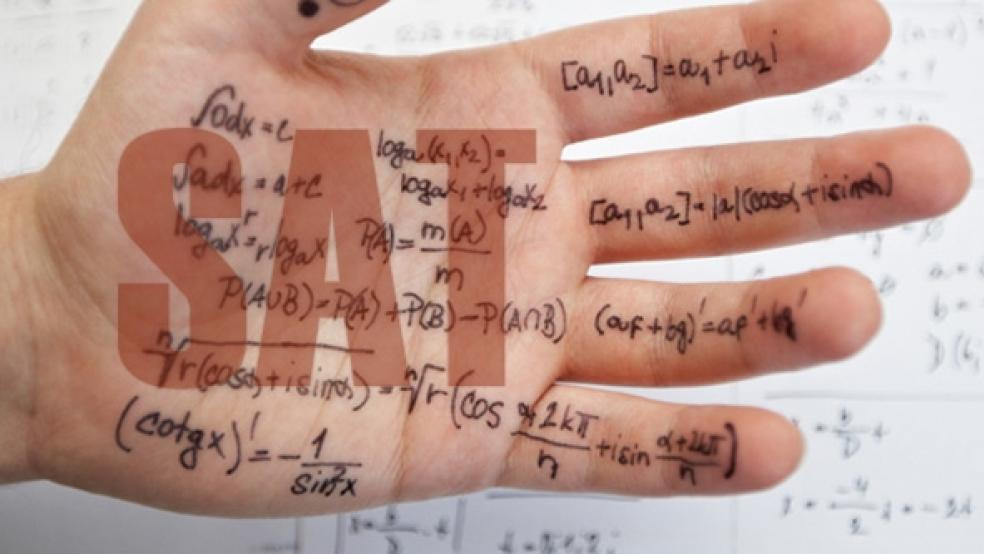RELATED:Cheat on Taxes As Much As Possible? More Say Yes
Our elders wax poetic about the erosion of values in our nation compared to their youth. They recall a more innocent time when all the lads were strong, courteous, and kind to their mommas, while all the young women wore modest attire and scolded boys who took liberties by trying to hold their hands at school. I grew up in the 1970s, so it’s difficult to write about my personal experiences with a golden age of chivalry and ethics. The generation of “I’m OK, You’re OK” has stronger ties to moral relativism than to moral fortitude.
Even by those standards, however, the prevalence and apparent acceptance of cheating in various forms should disturb us. The latest manifestation of this phenomenon comes from Mineola, New York, where Nassau County prosecutors have forced two companies that administer college-entrance examinations to tighten their security procedures. District Attorney Kathleen Rice has charged 20 current or former students with participating in a scheme to use ringers in the SAT and ACT tests needed to qualify for enrollment at most universities. Instead of taking the tests themselves, the students hired “experts” to take the tests, spending in some cases thousands of dollars to get a better exam score.
What does it matter that the cheaters will keep more worthy students from getting the access they have earned?
Thanks to this case, ACT and SAT testing will be more expensive for everyone – including high schools, which will now be burdened by extra costs. . The DA in this case has successfully pressured the College Board (SAT) and ACT Inc. to implement a two-level system for photo identification for testing. All students will have to submit a picture when they sign up for the test, and then produce a photo ID that matches the registration photo printed on their admission ticket. When the companies score the tests, the results will get sent to the high schools along with the picture of the person who took the test, so that the schools can check to see if any fraud occurred. All of this will impact the costs of the tests – and make admission more secure than voting in most political elections, too.
Instead of instilling a personal sense of honor and strict consequences for cheating, we end up insisting on massive and expensive interventions to deter it. The impulse for the College Board and ACT to protect their systems is understandable, but those systems will not work without a sense of shame to keep cheaters from innovating their way around the fresh obstacles.
On one level, cheating is an understandable impulse. Entrance exam scores can make a big difference in winning coveted slots at prestigious and more exclusive colleges and universities. Parents – who presumably foot the bill for hiring these ringers – feel tremendous pressure to give their children the best odds they can for gaining admission to Ivy League schools, where success would mean better prospects for future careers.
Wouldn’t we prefer to get the attorney who didn’t need to cheat to get into Harvard Law and then cheat his way through the bar exam?
What does it matter that the cheaters will keep more worthy students from getting the access they have earned? Actually, it means a lot – and not just for altruistic reasons, either, although those should come into play. We want the best and brightest to achieve the most, because at some point, we’ll need to see a doctor about a health issue, or perhaps an attorney to plan an estate or even to keep us out of jail. Even just for purely selfish reasons, wouldn’t we prefer to get the attorney who didn’t need to cheat to get into Harvard Law and then cheat his way through the bar exam? I feel safe in assuming that the parents of the people charged in this case will insist on getting the best possible legal representation for their offspring.
Even on a selfish plane, though, cheating on entrance exams doesn’t make a lot of sense, either. The principle underlying these exams is to make sure students don’t get into an academic situation that they can’t handle – a sure path to failure. Unless a parent wants to put the ringer through college, at some point their own high-school graduate will have to keep up at Harvard, Yale, Princeton, or other storied halls of learning.
Those who cannot take their own SAT or ACT will likely fare very poorly in those environments, wasting everyone’s time, money, and resources. Cheating in this case only cheats the student who pays someone to do their work for them as well as rob a more prepared student of the opportunity to excel.
Philandering goes back to biblical and pre-biblical civilization, but turning it into an industry is a modern novelty.
That’s not the only place where cheating has become mainstream as well as self-destructive. The website Ashley Madison provides a dating service that caters to married people looking to cheat on their spouses, matching them to others with similar motives. It’s not as though infidelity got invented along with the Internet, of course.
Philandering goes back to biblical and pre-biblical civilization, but turning it into an industry is a modern novelty. Until recently, most people understood that communities have a stake in keeping marriages and families stable. If anything, the last 50 years should have convinced people of the high costs of family breakdowns in social-service costs, crime, and educational underachievement.
Along the way, we lost the ability to instill the necessity for those systems of honor and integrity for their own sake. We accepted moral relativism as a guiding principle mainly because we found it easier to avoid judgment about the actions of others, unless and until it directly impacted our own lives. Small wonder now that cheating on entrance exams and on marriages became cottage industries as a result.



